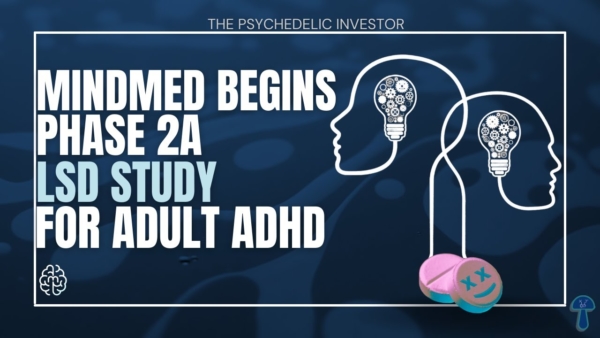
Big Pharma has certainly taken note of the potential therapeutic benefits of psychedelics. Otsuka, a major Japanese Pharmaceutical company, recently signed an agreement to acquire Canada’s Mindset Pharma, which specializes in developing psychedelic medications for neuropsychiatric disorders.
The move is reflective of the growing body of scientific evidence that indicates psychedelics may hold promise in areas such as addiction, depression, and anxiety.
This move by a larger company in the industry, such as Otsuka, represents a shift towards more established entities in the psychedelics category, which has traditionally been dominated by smaller start-ups. The onset of human trials for MSP-1014 in the coming months will offer further insights into the potential of this promising candidate.
In January 2022, Mindset Pharma entered into a partnership that made headlines worldwide. Teaming up with Otsuka’s McQuade Center for Strategic Research and Development (MSRD), the deal included a “strategic investment” for the development of two short-acting drug candidates.
Otsuka’s president, Makoto Inoue, stated that psychiatry and neurology are top priority therapeutic areas for the company. With a focus on the development of antipsychotic agents that hold global clinical significance, the addition of Mindset’s novel compounds and synthesis processes is expected to contribute significantly to the treatment of patients suffering from psychiatric disorders.
Mindset CEO, James Lanthier, sees this transaction as a great outcome for the company’s stakeholders, maximizing the value of its intellectual property portfolio and assets. With such a collaboration, the future could be a lot brighter for psychiatric patients globally.
Of course, this acquisition will undoubtedly be subject of controversy between two opposing camps, those who support Big Pharma and those who want natural plant medicine to be legalized as is, free from Big Pharma profiteering.
Entering into the psychedelics world comes with mixed perceptions. Big Pharma supporters will see this arrangement as an opportunity for profit and a new frontier to explore for medical advancements in the psychedelics field, leading to a faster legalization route. However, for natural plant medicine supporters, the idea of naturally occurring psychedelic medicines, such as psilocybin mushrooms and ayahuasca being monopolized by large corporations for financial gain is a concerning prospect. The belief that these natural remedies should be accessible to all without the influence of corporate interests and barriers to access is a strong one – and perhaps a valid one.
Such perspectives on the psychedelics world highlight the important ongoing debate on the role of corporations in healthcare and the impact that these decisions have on individual and societal well-being.
See also: Why Mindset Pharma’s Deal with Big Pharma Is a Big Deal for Psychedelics





